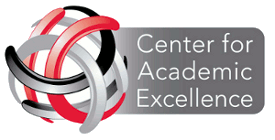“As I Walk Through Life To Find My Own Path”: Digital Stories for Digital Times
Location
DSB, Room 110
Start Date
29-5-2013 3:15 PM
End Date
29-5-2013 4:30 PM
Session Type
Interactive Session
Description
Without a doubt, educators in the 21st century are expected to work with "digital pencils" (Lei, Conway, & Zhao, 2008) more now than ever before, especially as composing processes have entered the brave new world of online writing (Oh, 2008). With this said, research on digital literacies has not kept up with technological advancements (Department of Education, 2000, 2004, 2008). Even so, digital writing remains new literature (Himmer, 2004) and affects how students think about the ways they make meaning (Oliver, 2007). Composing digitally helps students to take part in larger communities than traditional classrooms, alone (Mortenson, 2004). This interactive session asks participants to think about possibilities for incorporating "digital storytelling" (Hall & Katz, 2006; Miller, 2007) in course pedagogy. The presenter offers personal models, shares the work of high school students, and offers examples of student teachers to highlight how the genre has been used for multiple purposes and audiences, including a poetic composition from a Somali Bantu youth who relocated from a refuge camp in Africa. In this session participants will construct an offline draft for a digital story through the promotion of visual (Frey & Fisher, 2008) and sonic literacies (Comstock & Hocks, 2006). A conversation about the possibility for multiliteracies (New London Group, 1996) in K - Graduate School classrooms will be initiated.
Topic Designation
Community-engaged teaching and scholarship, Diversity issues in teaching and learning, Teaching & Learning, Technology
“As I Walk Through Life To Find My Own Path”: Digital Stories for Digital Times
DSB, Room 110
Without a doubt, educators in the 21st century are expected to work with "digital pencils" (Lei, Conway, & Zhao, 2008) more now than ever before, especially as composing processes have entered the brave new world of online writing (Oh, 2008). With this said, research on digital literacies has not kept up with technological advancements (Department of Education, 2000, 2004, 2008). Even so, digital writing remains new literature (Himmer, 2004) and affects how students think about the ways they make meaning (Oliver, 2007). Composing digitally helps students to take part in larger communities than traditional classrooms, alone (Mortenson, 2004). This interactive session asks participants to think about possibilities for incorporating "digital storytelling" (Hall & Katz, 2006; Miller, 2007) in course pedagogy. The presenter offers personal models, shares the work of high school students, and offers examples of student teachers to highlight how the genre has been used for multiple purposes and audiences, including a poetic composition from a Somali Bantu youth who relocated from a refuge camp in Africa. In this session participants will construct an offline draft for a digital story through the promotion of visual (Frey & Fisher, 2008) and sonic literacies (Comstock & Hocks, 2006). A conversation about the possibility for multiliteracies (New London Group, 1996) in K - Graduate School classrooms will be initiated.


